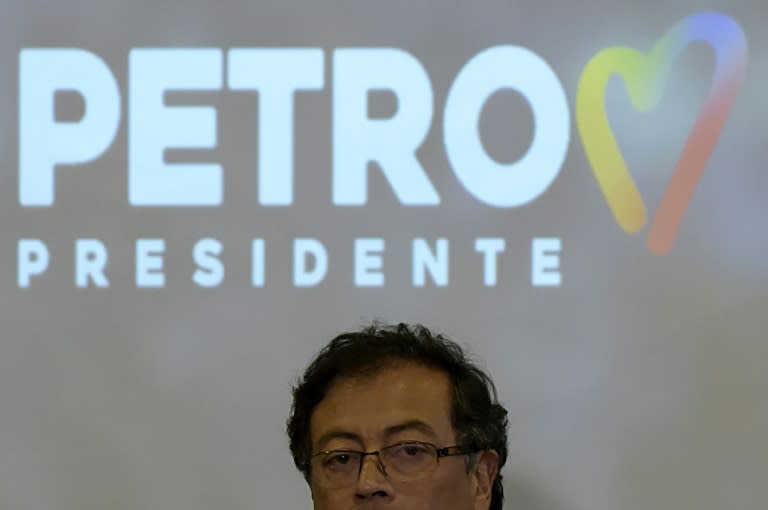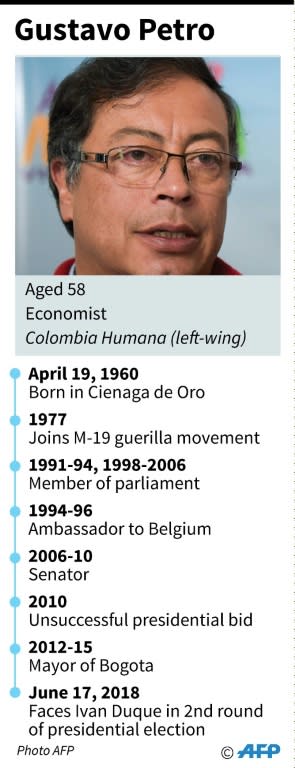Ex-guerrilla Petro carrying left's hopes in Colombia's election
Former guerrilla Gustavo Petro believes his presence in Colombia's presidential run-off election on Sunday shows the South American country has shed its suspicions of the left, tainted by 50 years of conflict. Petro is the first leftist candidate to make it to the second round of a presidential election here, and sees it as a dividend of the government's 2016 peace agreement with the FARC rebels. Petro, who was a member of the now disbanded M-19 guerrilla group in his youth, says his own role in Colombia's bloody wars was as an organizer, not a fighter. His background places him at the opposite end of the spectrum to his opponent, conservative front-runner Ivan Duque, a 41-year old economist-turned-senator. He is offering Colombians a simple choice, pledging to uphold the peace agreement where Duque vows to rewrite it, and thereby making it less lenient in order to jail onetime guerrilla leaders guilty of serious crimes. The 58-year-old former Bogota mayor has been a surprise in the presidential race -- the first since the peace deal with the FARC. The rebel group's five-decade war of terror has stigmatized the political left in Colombia, but Petro nevertheless attracted large crowds to his campaign rallies, including many young people. "People have been able to detach themselves from the fear generated by war and the politics of hatred," he told AFP. While the latest opinion polls still make him a long shot to win, he has a chance to follow in the footsteps of other Latin American rebels-turned-presidents, such as Dilma Rousseff in Brazil or Uruguay's Jose Mujica. -Threat to right- In a Colombia deeply scarred by the conflict, Petro's success has for the first time posed a leftist threat to the traditional dominance of the conservative and liberal elite. He claims his campaign was blackballed by the conservative mainstream press, but he found his audience via social media, becoming the candidate with the most Twitter and Facebook followers. Short and bespectacled, Petro has gained a reputation as a talented speaker. His critics dismiss him as a "radical populist," reminding people of M-19's signature bloody 1985 assault on the Bogota Palace of Justice, which left 99 people dead, even though Petro was in prison when the siege took place. A former comrade in arms, Juan Montana, described him as "a bad guerrilla with a gun, but a good political guerrilla." Petro, a father of six, "is a very demanding, results-oriented man. He's likeable, generous, very shy and separates his family life from his public life very well," said another associate, Jorge Rojas. From a family of modest means on the Caribbean coast, Petro was born in 1960 and joined M-19 as a 17-year-old, having been radicalized by the rightist coup in Chile. He studied economics but became a political activist before he was arrested and tortured. He gained a reputation for arrogance and bad management during a stint as Bogota's mayor, which ended after three years in 2015. Critics highlight his authoritarian streak and an unrealistic reform manifesto, which includes a plan to buy up land from big agro-industries and redistribute it to poor farmers to help redress Colombia's glaring wealth gap. Duque and the right pounced on his stated admiration for the late Venezuelan president Hugo Chavez during the campaign, warning voters not to allow the left to lead Colombia down the same ruinous path as its socialist-ruled neighbor.



